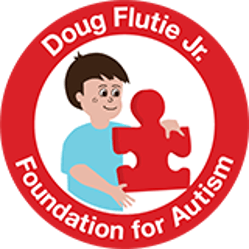Give
The Spectrum Support Program at RIT offers transition and ongoing support to RIT students with autism spectrum disorders. We are committed to helping students build the connections to RIT that will assist them in achieving academic, social, and career success.
Gifts to the Spectrum Support Program help keep enrollment fees affordable, offset enrollment fees for families who qualify for financial assistance, and support the creation of new program initiatives. Thank you for your support.
Spectrum Support Program History
Enrollment in the Spectrum Support Program has increased over 700% since its inception in 2008 and now serves up to 100 students each year. Initially serving primarily incoming freshman, the program has continued to develop services to support students as they navigate the transition into as well as out of RIT. Program development has been made possible through university support, in addition to program enrollment fees, gifts and grants.
Initial Program Funders

The Doug Flutie, Jr. Foundation For Autism, Inc.
Funding from The Doug Flutie, Jr. Foundation for Autism, Inc. supported the expansion of the 2008/2009 Spectrum Support Pilot Program. Specifically, grant monies were directed toward the development of a comprehensive peer coach training curriculum, design and creation of the SSP website, and program evaluation.

National Science Foundation
Portions of the Spectrum Support Program (SSP) were made possible through a two-year National Science Foundation Enrichment Grant aimed at RIT undergraduate students with autism spectrum disorders enrolled in STEM degree programs. Two year grant funding supported case management and peer coaching services, faculty and staff training and program evaluation efforts for the 2009/2010 and 2010/2011 academic years.